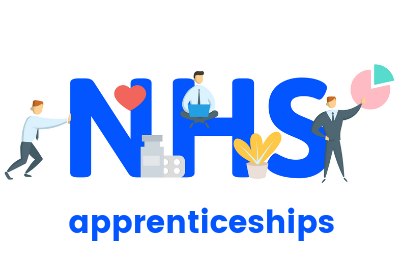NHS apprenticeships: an interview with Lucy Hunte from HEE

A few weeks ago, we caught up with Lucy Hunte – the national programme manager for apprenticeships at Health Education England (HEE). As you can imagine, she has a very challenging and extremely important role. She’s responsible for planning and managing all NHS apprenticeships – which in the current climate is a mammoth undertaking. As the UK’s largest employer, the NHS has access to £200 million of apprenticeship levy, which it needs to spend to reach its ambitious apprenticeship target.
Delivering apprenticeships on this scale is no easy feat, so we asked her what she thinks about the levy, what challenges the NHS is facing, and how apprenticeships fit into the solution.
OneFile: What is your role within Health Education England?
Lucy: I am the national programme manager for apprenticeships. I work with the Department of Health to support the NHS in all aspects of apprenticeship implementation and delivery.
O: What kind of numbers are we talking about?
L: The NHS has a combined levy spend of over £200 million a year... we have a public sector target of 28,000 starts per year... we have 350 different job roles, and 86 different frameworks and standards are being developed – and there’s still a long way to go.
O: How has the apprenticeship levy affected the NHS?
L: It’s been a journey. I think the levy is a very positive thing – for once we have a fixed budget to spend on skills and development. This is really important, especially in the NHS with the removal of bursaries and access to some programmes becoming a challenge. Using the levy to attract new talent into the NHS and upskill the existing workforce has been a really positive thing.
O: What are the challenges in the NHS regarding skills?
L: English and maths is a huge barrier. People need to achieve level 1 English and maths before they can complete a level 2 apprenticeship, so that’s really getting in the way of people’s career progression.
Some people also struggle with digital skills. We have a highly competent workforce but give them a tablet and they’ll struggle. With so many trusts moving to online records and digital prescriptions, we’re assuming most people have basic digital skills – but it’s becoming quickly apparent that they don’t.
We’re making positive steps to help people develop their digital skills. Health tech is growing and soon healthcare staff will be expected to use technology in their everyday jobs, so developing digital skills will give them more confidence and futureproof their roles – which is crucial.
We also have a huge percentage of the workforce for whom English is not their first language, so we have to cater for those employees as well.
O: You’ve mentioned before that even if people aren’t doing an apprenticeship, you’re upskilling in English and maths.
L: Yes, we’re just scoping it out at the moment. We’ve commissioned a survey with Middlesex University to hear from people in the sector – apprentices, training providers and employers that are working in health and social care. Our main remit is in the NHS, but we’re looking at the wider health and social care sector too. If there’s anything we can do to reduce the burden on A&E by putting apprenticeships in care homes, hospices, GP practices and pharmacies we’ll bring it into our agenda – it can only have a positive impact.
O: A few weeks ago, the IfA rejected the business admin level 2. What are your thoughts on this?
L: It’s very disappointing. We’ve been actively involved in supporting this programme as for us it’s a crucial entry point into the NHS. Many of the candidates that apply are not suitable for level 3 as they haven’t got level 2 in English and maths. Slotting them on to customer service is not a solution if it’s a purely business admin role. Instead of just doing an apprenticeship for the sake of it, we actually want to give people the skills and competencies they need to be able to progress.
O: How does the NHS promote a diverse workforce?
L: This is something we’re definitely looking at more and more. There are several programmes people can do with the Leadership Academy, which is part of the NHS. We have a focus on BAME recruitment and leadership programmes which target hard to reach individuals and support them to develop their careers. There’s definitely still room for more to be done. It comes down to recruitment and us making sure we see a wide selection of candidates.
To find out how your NHS trust can make the most of their apprenticeship levy funds, download your apprenticeship levy starter pack.
This article includes research and opinion sourced by OneFile at the time of publication. Things may have changed since then,
so this research is to be used at the reader's discretion. OneFile is not liable for any action taken based on this research.


